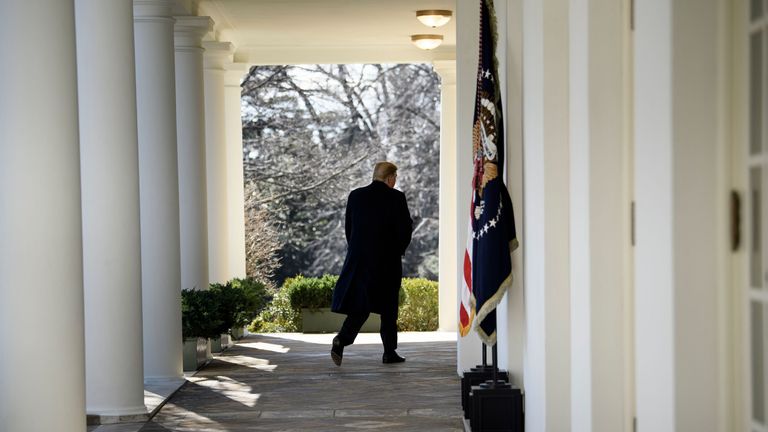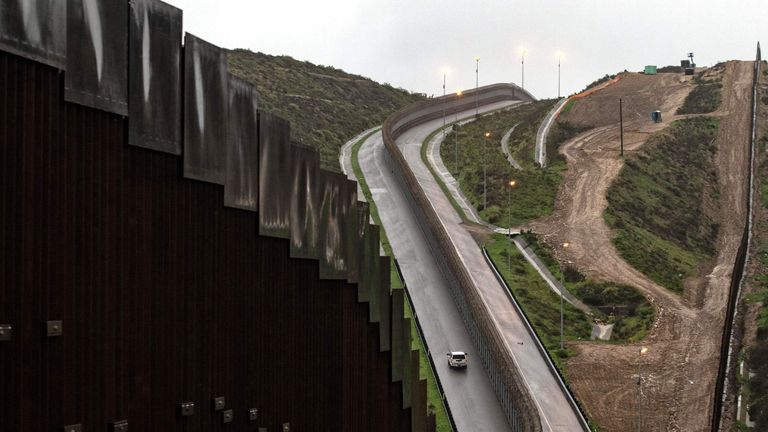Border wall funding battle: Is Trump’s ‘executive action’ legal?
By declaring a national emergency, Donald Trump has transformed a heated conflict over policy into a central debate about separation of powers in America.
At a freewheeling press conference, he framed his move as an attempt to protect the country from the flow of drugs and criminals – something he casts as a profound threat to national security.
Democrats fiercely disagree – quickly branding the manoeuvre as an unconstitutional power grab.
Some legal experts I’ve heard from say the administration is well able to make serious arguments to justify its move though.
Of course, the courts could also decide that the president is over-reaching the spirit of the law.
One thing is for certain, we are looking at a protracted legal battle ahead.
The president sounded very resigned to that fact in the White House Rose Garden, if not fired up by the prospect.
Whatever lower court tussles take place, it will likely end up at the Supreme Court. The president knows that and after approving two justices, he seems confident he will win out.
He is banking on becoming the victor in an internal battle, too.
By working around Congress not through it, the president is forcing the hands of those in his party who said they thought a national emergency was a bad idea.
They will have to decide where their loyalties lie. Some are concerned this will set a precedent in the future for Democrats to declare national emergency for their own policy priorities – be it climate change or gun control.
So what happens next?
The Democrat-led House of Representatives will likely pass a resolution against the president’s move – they have already signalled as much.
If Democrats can get a dozen or so Republicans in the Senate to support them, then it too may go against the president. But that is far from certain.
And even if both chambers did that, the president would still have veto power- so long as the votes weren’t passed with supermajorities.
I expect a lot of Republicans will ultimately fall in line – perhaps through deference to the president, a desire to get the ball moving or just political expedience for those in hotly-contested states.
This is the 32nd national emergency declared in the US.
The majority of those in the past dealt with foreign crises and involved blocking trade, not redirecting funds without congressional approval.
As so often with Mr Trump, this is pretty new territory.
By bypassing Congress, he has the potential to amass far more money for his much-promised wall than they ever would have allowed.
Once again, convention is being tested by a president who revels in breaking with Washington norms. Mr Trump always thinks in terms of public relations and what he can sell the people.
After this latest controversy, one thing he can tell his supporters is that he’s willing to do whatever is necessary to get them a wall.
He’s also managed to get the nation talking about border security. The question now is whether his executive action is actually legal.
Source: Read Full Article




